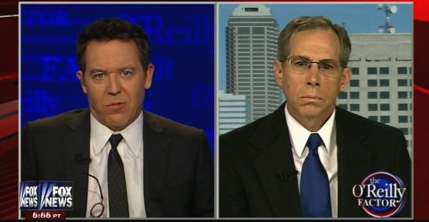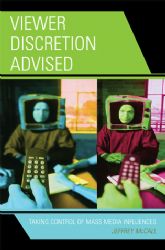Today's "Wild West of Information Resources" Can be Tough to Navigate: Prof. Jeff McCall '76
December 4, 2017
"Just a few decades ago, citizens who wanted to stay on top of the daily news had a narrow range of options," Jeffrey M. McCall, professor of communication at DePauw University, writes in The Hill. "They could read a newspaper, watch an evening network newscast, or maybe just have a conversation with a trusted neighbor or co-worker. Today, the digital world today has created a Wild West of information resources. One could question, however, whether we're really more informed compared to pre-digital news consumers."
In today's environment, outlets such as Google, Facebook, the Drudge Report and Twitter "are transforming the public sphere," Dr. McCall observes. "They wield tremendous power as the leading 'referrers' of news content on the web. News narratives in the broader sphere now rely heavily on the traction that evolves from these titans of industry as more and more Americans say they rely on social media for getting their 'news' of the day."
 Citing a survey by the Pew Research Center, which finds that 45% of Americans say they now get at least some of their news from Facebook, McCall sees danger. "That means these news consumers are increasingly influenced by digital behemoths whose methods for news referrals are mysterious and for which there is little accountability. One must wonder if news consumers are better informed on matters of substance or if their heads are filling up with mush."
Citing a survey by the Pew Research Center, which finds that 45% of Americans say they now get at least some of their news from Facebook, McCall sees danger. "That means these news consumers are increasingly influenced by digital behemoths whose methods for news referrals are mysterious and for which there is little accountability. One must wonder if news consumers are better informed on matters of substance or if their heads are filling up with mush."
He adds, "As they become increasingly influential gatekeepers, we should question whether these digital powers can be trusted to exercise their role in a balanced manner. Trust in the 'news media' has been dropping for 15 years, coinciding with the growth of the digital world. That relationship is worth pondering."
The DePauw professor points to "The Trust Project", an initiative from the Markkula Center for Applied Ethics at Santa Clara University. "Its objective is to create a system by which news articles circulated online will have icons attached that consumers can click to find out the background of the news source. Clicking on the icon will provide readers with 'Trust Indicators' to help consumers assess the professional standards of those news organizations. The bad news? Search engines and social media platforms will be partnering in the effort. It's a noble undertaking, to be sure, but having the digital power brokers referee the process could be like having baseball players call their own balls and strikes."
McCall's column concludes, "The news world has changed one set of gatekeepers (legacy media) for another set (digital search engines and  social media). Whatever else can be said of that change, it's safe to say times were simpler when consumers only relied on Walter Cronkite."
social media). Whatever else can be said of that change, it's safe to say times were simpler when consumers only relied on Walter Cronkite."
You'll find the complete essay here.
Jeff McCall is author of the book Viewer Discretion Advised: Taking Control of Mass Media Influences and a 1976 graduate of DePauw where he was a Rector Scholar and speech (communication) major and worked on student radio station WGRE, which he now serves as faculty adviser. McCall earned a master's degree from the University of Illinois and a Ph.D. from the University of Missouri.
The professor has been cited in stories by more than 100 American newspapers in articles covering media matters. In the past week, he's talked with the Washington Post and FOX News. McCall discussed his latest column this morning on KABC radio in Los Angeles; hear the segment below.
Source: The Hill
Back